GRSJ224/racialprofiling
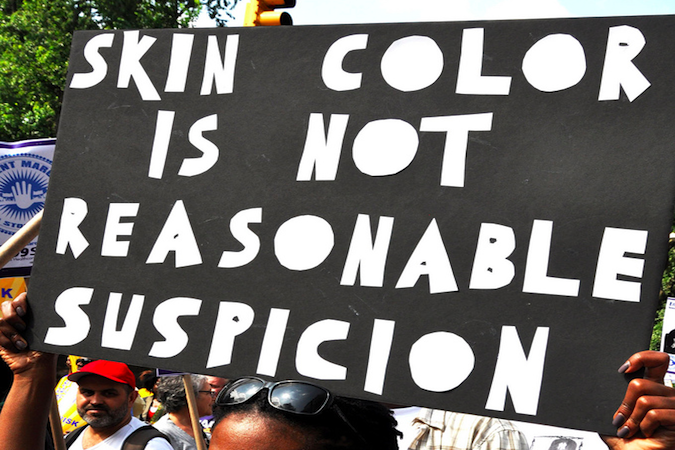
Racial profiling is a type of discrimination that targets a person of a certain race based on a stereotype about their race. [1] Given the historical and cultural development of human society, racism can be classified as a huge social problem. [2] Discrimination has improved drastically compared to the 18th and 19th century, but implicitly it is hard to erase them completely. Racism could be described as a way to distinguish each other between cultures but with a hierarchical system. [3] Under the idea of the hierarchical system discrimination was naturally produced. Most dominant cultures had positioned themselves on the top of the hierarchical system; this leads to racial profiling and discrimination around the globe today. The issue of racial profiling had often been utilized by the politicians in their best interest. [4] The history of different cultures and backgrounds are accounted for and contribute to the hierarchical system that has been passed on till today. [5] These are external persecution generating racial profiling and discrimination.
History
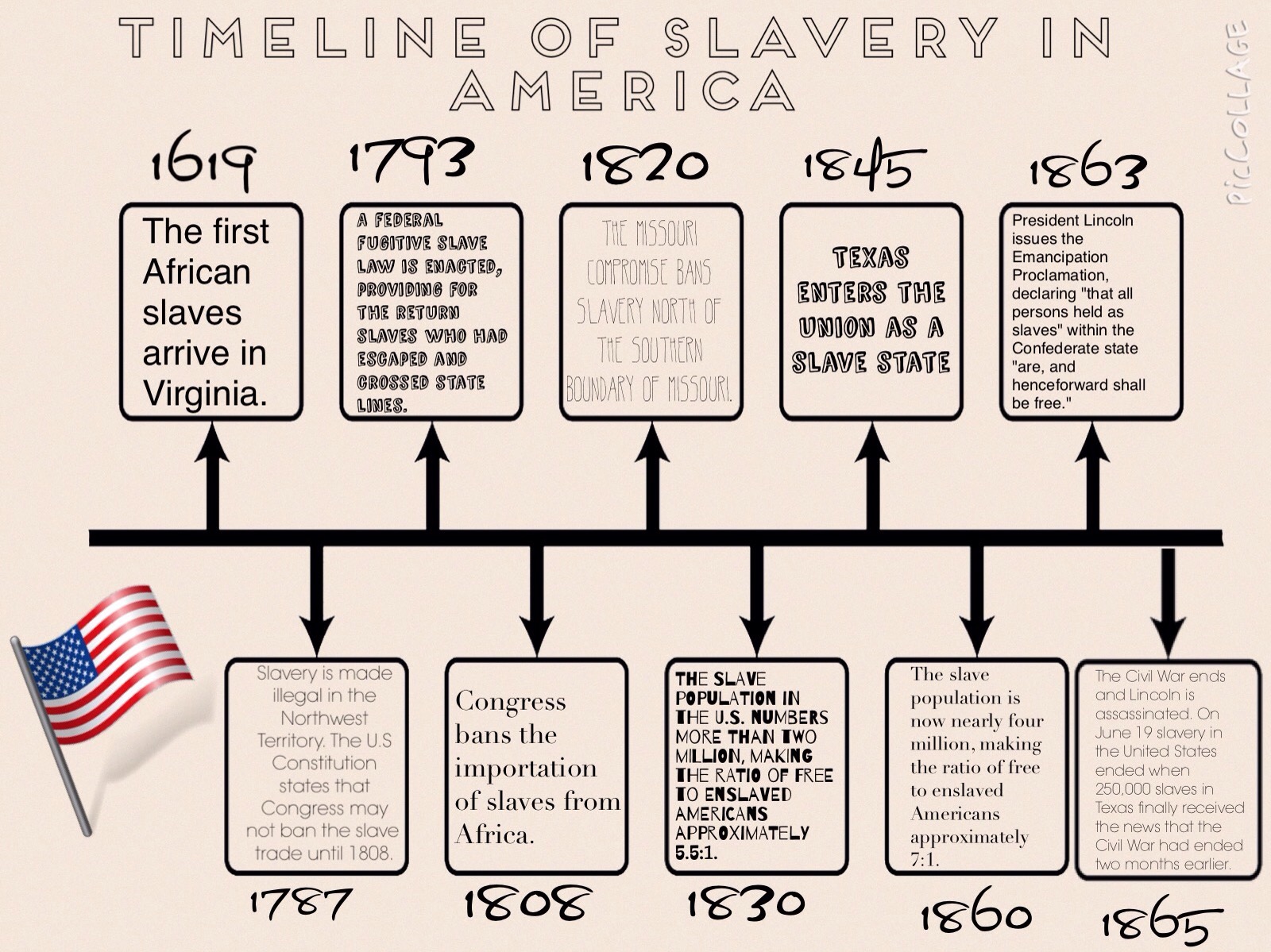
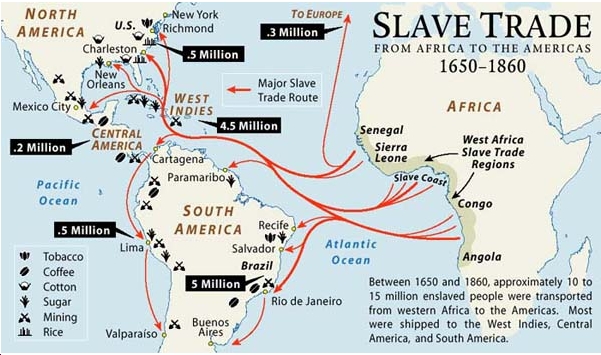
The origin of slavery played the most important role in this hierarchical system in North America. [6] The slavery system in North American is one of the main method of capital accumulation; it promotes development of American capitalism. [6] When different cultures interact, the culture with predominance usually has a huge advantage. This when the sense of superiority comes in, and this results in discriminatory behaviour that cannot tolerate or accommodate other cultures. [7] Cultural and historic backgrounds are important factors in the discussion of racism.
Roots of Racism
In the research, the Roots of Racism shows how black slaves are considered property, the American’s slave market was the biggest during the 17th 18th century. It laid the foundations for the southern part of Americas’ economic life, the brutal slave trade would continue for slavery. [7] This sets the foundation for the hierarchical system in the North America, the whites had established themselves on the top of the pyramid and this had continued for centuries. At last, the slavery system caused backlash, the abolishment of slavery resulted in the Civil War. Although the slavery system was abolished, the sense of superiority of the whites have not disappeared. Most dominant cultures had positioned themselves on the top of the hierarchical system; this leads to racial profiling and discrimination around the globe today. Each culture during history at some point definitely had conflict with another culture, that conflict will forever be remembered within the hearts of the people.
Perceived Experiences
Both race and personal experience with racial profiling are strong predictors of attitudes toward discrimination. It also appears that personal contacts with police have a stronger effect on African Americans’ attitude toward the police than on whites’ attitudes. Perceived experience with profiling may be a strong predictor of attitudes toward the police. [3] What you see every day in the media and newspapers or even through basic human interaction are all accounted in your perceived experiences. These are the factors that would drastically change your perception towards racial profiling. Another interesting factor that are accounted for in the research is the education level of the sample. Several studies have shown that citizens, and blacks especially, are much more likely to cooperate with officers when they are given a reason for the stop, and that people put a premium on officers being polite, listening to citizens, and explaining their actions. [3] Normally these kinds of actions are associated with higher education level, education is the easiest route to change your personal experiences so that you are more aware of your actions. Like the survey in the research indicates, just by giving a bit more information to justify the police stops it could greatly minimizes the conflict between police and citizens. Therefore, it is important to implement these actions by the police force and other public institutions.
Immaculate Perception
Do you discriminate? UCLA law professor Jerry Kang exposes the phenomenon of automatic processing and how it relates to explicit and implicit bias. Decades of research shows that attitudes and stereotypes influence how we see and behave. Despite our best efforts, are we all under the sway of "the rightness of whiteness?" And is there evidence showing that these biases can be reduced -- at least temporarily? Using humor and audience participation, Kang challenges our assumptions while shifting our perceptions of at least one Asian male.
In the spirit of ideas worth spreading, TEDx is a program of local, self-organized events that bring people together to share a TED-like experience. At a TEDx event, TEDTalks video and live speakers combine to spark deep discussion and connection in a small group. These local, self-organized events are branded TEDx, where x = independently organized TED event. The TED Conference provides general guidance for the TEDx program, but individual TEDx events are self-organized.* (*Subject to certain rules and regulations) [8]
Social Problems
The government and the educational system are the only ways improve our perception towards race. [4] Racial profiling and discrimination not only lead to immigration problems and terrorism; street-level crime or discriminations are what we will be encountering everyday. [5] The hierarchical system needs to be abolished in order to improve the overall welfare of different cultures of people living in that country, but in reality this is not possible because this hierarchical system is engraved into our identity.
State Highway patrols
A study in Arizona shows that during 2006-2007, the state highway patrol was significantly more likely to stop African Americans and Hispanics than Whites on all the highways studied, while Native Americans and persons of Middle Eastern descent were more likely to be stopped on nearly all the highways studied. [2] The highway patrol was 3.5 times more likely to search a stopped Native American than a White, and 2.5 times more likely to search a stopped African American or Hispanic. [2] This problem is not exclusive to North America, as these type of statistics are not much better in other countries. Defenders of racial profiling argue that it is a rational response to patterns of criminal behaviours.
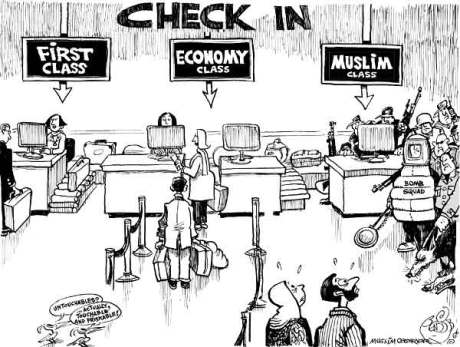
Racial profiling at airports
Racial profiling at airports adds a colour-coded cost when I fly on business The newspaper article about “Racial profiling at airports adds a colour-coded cost when I fly on business” had drawed attention to the racial profiling problem that had become an increasingly controversial problem in recent years. The article by Pallavi Banerjee shows how racial profiling could impact how you get treated in public sectors especially at the airport. Airports are the entrance to every country and should scrutinize the public as a security precaution but having employees that discriminates base on the color of your skin is just unacceptable. It is unacceptable to judge an individual by their passport and cause a regular business-man to suffer from various inconveniences.
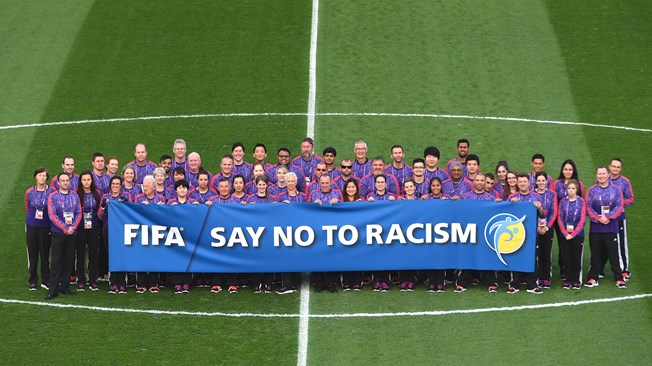
Discrimination at FIFA
FIFA fines Canada Soccer for fans' boorish behaviour at B.C. Place The newspaper article about “FIFA fines Canada Soccer for fans' boorish behaviour at B.C. Place” had really attracted attention about subconscious discriminations and what effect it had on others. The article by Marc Webber stated FIFA imposed 11 associations for the “discriminatory and unsporting conduct of fans” during recent qualifiers. These type of behaviours by the fans are notably common, it gets worst when it’s on a national level like FIFA. The article shows the amount of fine each country is accounted for breaking the “discriminatory and unsporting conduct of fans”. These stereotypical and sexist insults that I observed while watching the game should be defined as the implicit biases of discrimination. In an event like FIFA, it is easily to distinguish the discrimination that happens subconsciously.
Racial Profiling v.s. Sociology
Multiculturalism
Most discriminations are associated with multiculturalism. Multiculturalism exist is because we are able to distinguish different types of culture but since we have the ability to differentiate each difference stereotypes and discriminations will take place. [9] Stereotypes exist today is just a simplification reflection on our reality, sometimes stereotypes could be an over exaggeration of certain ways of doing things but these stereotypes exist only because a vast amount of people falls into that category. [5] These stereotypes are often associated with our implicit bias which naturally occurred base on the environment that we grew up in. These are all developed by personal experiences, different experiences could lead to different way of categorizing people. [10] The phenomenon of multiculturalism is associated to our community, if we look into our demographics and look at the percentages of black homeless people and white homeless people the blacks probably has a higher percentage. [9] This is why stereotypes exist and how it could influence our subconscious discrimination. Typically, a person with decent education level could respect and appreciate other cultures but implicit bias will still exist because by the theory of multiculturalism that we are able to categorize each culture and group.
Interactionism
The traces of interactionism are the fundamentals of why discriminations exists. Interactionism is the study of how individuals shape society and are shaped by society through meaning that aries in interactions. We humans communicate to exchange meanings, experience, and knowledge, but those meanings, experiences and knowledge aren't pleasantly all the time. [4] As time proceeds, unpleasant meanings, experiences and knowledge turned into conflicts and conflicts leads to different social problems. [10] We were all brought up in different environment and experiences, we also have different values and perspective it is quite astonishing how two people can become friends. Cultures are unique, it is best to accept the differences and stop discrimination.
References
- ↑ "Profiling". Merriam-Webster's Collegiate® Dictionary, Eleventh Edition.
- ↑ 2.0 2.1 2.2 Henderson W. (2011). Restoring a National Consensus: The Need to End Racial Profiling in America.
- ↑ 3.0 3.1 3.2 Weitzer, R. (2002). Perceptions of Racial Profiling: Race, Class, and Personal Experiences, Volume 40, Issue 2. Retrieved from http://onlinelibrary.wiley.com/doi/10.1111/j.1745-9125.2002.tb00962.x/citedby
- ↑ 4.0 4.1 4.2 Michelle Lebaron and Venashri Pillay. (2006) Conflict Across Cultures : A Unique Experience of Bridging Differences.
- ↑ 5.0 5.1 5.2 Bulmer, M., & Solomos, J. (2008). Racism. Oxford Readers.
- ↑ 6.0 6.1 Acemoglu, Daron, Simon Johnson, and James Robinson. "Institutions as the Fundamental Cause of Long-run Growth." May 2004. <http://www.nber.org/papers/w10481.pdf>.
- ↑ 7.0 7.1 Culotta, E. (2012). Roots of Racism, Vol. 336, Issue 6083. Retrieved from http://science.sciencemag.org/content/336/6083/825
- ↑ Kang, J. (2013) Jerry Kang: Immaculate perception [Video file]. Retrieved from https://www.youtube.com/watch?v=9VGbwNI6Ssk
- ↑ 9.0 9.1 Kymlicka, W. (2003). Canadian Multiculturalism in Historical and Comparative Perspective. Forum Constitutional
- ↑ 10.0 10.1 Tara J. Yosso and Daniel G. Solórzano. (2005) in Blackwell companion to social inequities.